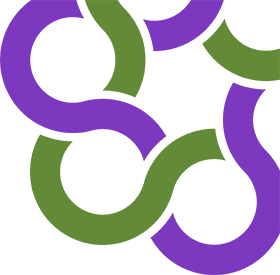Assessment
Early Years Foundation Stage (EYFS)
Ongoing, formative assessment is an integral part of Early Years practice. Practitioners in our nursery and reception know the children's interests, levels of attainments and next steps well and are continuously using this knowledge to shape their teaching, interactions, planned and spontaneous learning opportunities for all children. Observations and formative assessments of children are recorded on SeeSaw throughout the year and build up a picture of a child's progress and attainment. Parents and carers can access children's learning journeys through SeeSaw.
Practitioner knowledge of children and observations are used to inform summative assessments termly. Children are assessed as being 'on track' or 'below' the end of year expectations. This tracks pupil progress and attainment and informs teaching and learning.
Development matters (non-statutory guidance, 2020) is used to support teacher's formative assessment; using the statements for children's age band.
In line with the EYFS Framework (2020), formal assessment of children takes place at the beginning of the reception year and the end of the reception year.
Within the first six weeks of their reception year, all children complete the Reception Baseline Assessment (RBA). This is a statutory assessment which will measure the progress of children from entry to reception to the end of year 6. Children are assessed in mathematics and literacy, communication and language.
Data from the RBA is stored in the National Pupil Database (NPD) and is not shared or used in school. A brief overview of a child's RBA is shared with parents in the form of a descriptive statement, not a score. Teachers complete baseline assessments of all pupils in the form of observations within this same period to ensure that learning is matched to children's abilities and that misconceptions are addressed as soon as children start school.
In the final term of reception, the EYFS Profile is completed for each child. When completing the profile, practitioners use their knowledge of children and observations to help them to assess pupil attainment against the 17 Early Learning Goals (ELGs). Children are assessed as having met the expected level of development for the ELGs or as not yet meeting the expected levels ('emerging').
The EYFS Profile report is shared with parents and carers with each child's end of year report. The EYFSP is also shared with the Year One teachers as part of the transition process to ensure that all children receive appropriate levels of support as they move into KS1.
In-school assessments also include regular phonics and maths assessments to monitor children's progress following teaching. These assessments are usually every half term to monitor progress and identify gaps.
KS1 (Years 1 & 2) and KS2 (Years 3, 4, 5 & 6)
In line with the National Curriculum expectations, children will be assessed in a number of ways.
Lakeside Curriculum is based on the National Curriculum and covers all requirements for the specific year groups. These are called ‘Year End Expectations’
The ‘Year End Expectations’ have been taken from the National Curriculum and state the minimum requirements a learner must meet in order to ensure continued progress throughout the year, in line with age expected standards.
A copy of the ‘Year End Expectations’ for Reading, Writing, Maths and Science for the year group your child is available below. (click the link to download the document)
Any gaps identified in learning for the children will be covered and staff have worked together to ensure that the coverage for children is in place.
Learners are assessed regularly against each area in terms of whether they are; 'Working Towards' the age related expectations or they are 'Working At' the age Related Expectations for their year group, this information is used to identify next steps for each learner.
The National Curriculum focuses very much on ensuring children have a breadth of understanding within the concepts and skills they learn. The application of skills and understanding across a wide range of curriculum areas is key.
Rather than moving ‘up’ to the next years curriculum early, the focus is on moving ‘outwards’ developing a deeper understanding. Staff continue to differentiate activities to ensure that all learners needs are met.
Statutory Assessments
Reception - Reception Baseline Assessment completed on-entry to reception. (In the first 6 weeks of reception).
Year 1 – Phonics Screening assessment in June. Results are submitted to the Local Authority & DfE (Department for Education)
Year 2 – Assessments in Reading, Grammar and Punctuation and Maths – during the month of May. The results of the tests are used to inform a teacher assessment.
Year 4 - Mulitplication Tables Check in June. Results are submitted to the Local Authority & DfE (Department for Education)
Year 6 – Statutory assessments in Reading, Grammar and Punctuation and Maths – during a set week in May (WC 9th May 2022) Along with a teacher assessment of their writing and science ability. Results are submitted to the Local Authority & DfE (Department for Education)
Parents and Carers will receive the outcome of the Statutory Assessments within the end of year pupil reports.
If parents and carers require any further information, please do not hesitate to speak to your child class teacher.

 Lakeside Primary Academy
Lakeside Primary Academy